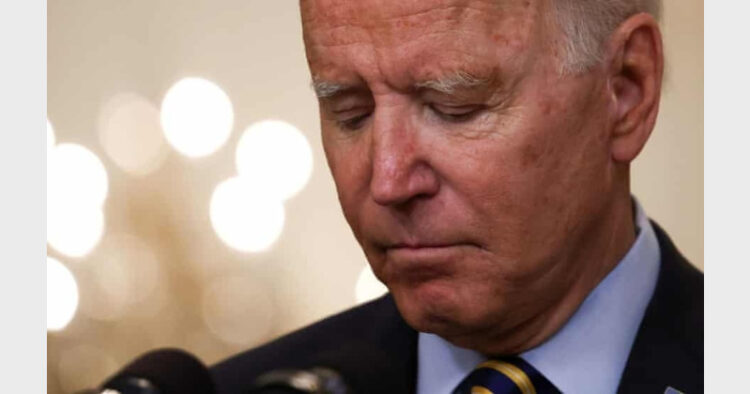Is it still the global leader? In November, Chinese Prez Xi Jinping said, "It is playing with fire, and if you play with fire, you will get burned". The reference was US support to Taiwan.
New Delhi: It has been the most frustrating year for Americans in the recent past, but the journey continues. A regime change marked 2021 in the United States. But the transition of power was not smooth and reflective of a healthy democracy.
Joseph Robinette Biden-a former Vice President Joe Biden is the 46th President of the US who assumed office on January 20 this year.
"Democrats suggested they could charge President Donald Trump with "high crimes and misdemeanours" for inciting a mob that attacked the Capitol," reported 'The New York Times', definitely adding to the shame of all Americans and their much-touted claims over democracy.
However, at the end of the calendar year, Biden hosted virtually a Summit for Democracy, trying to enlist the support of key global players, including India and its charismatic leader Narendra Modi against the supposed hegemony of two authoritarian powers, Russia and China.
There is a paradox in it, too, as India has certainly inched close to the US over the years, while Russia and China are closer between them. And, of course, Beijing maintained blow hot-blow cold relationships with both New Delhi and Washington throughout circa 2021.
For Biden, of course, the worst crisis that hit America's global reputation was the Afghanistan crisis. In simpler language, it was a 'botched up' withdrawal of NATO forces from Afghanistan, and the Taliban took over Kabul on August 15, 2021. Americans had themselves to blame for everything. The so-called 'Doha' assurances of the Taliban leaders
In the last few years came a cropper. Of course, a few weeks after the August high drama punctuated with loss of face for Uncle Sam, India's no-nonsense External Affairs Minister, Dr S Jaishankar, did some plain speaking.
"….When I say levels of concern, the commitments which were made by the Taliban at Doha, the US knows it best. We were not taken into confidence on various aspects of that," Dr Jaishankar said, speaking virtually at the Leadership summit of the US-India Strategic Partnership Forum (USISPF).
Only on August 26, Biden's Afghanistan policy hit his country most. At least 60 civilians and 12 US service members were killed as Islamic State claimed responsibility for the dastardly Kabul attacks. It turned out to be the deadliest day for US forces in a decade, subjecting President Biden to face sharper criticism.
The evacuation of western forces and others from Afghanistan plunged into a deeper crisis as multiple explosions in Kabul killed scores throwing the entire world into a panic. Biden took a stand in his national broadcast and asserted: "We will not forgive, we will not forget. We will hunt you down…". But the truth was much bitter about being sweetened or otherwise by his rhetoric.
The Afghanistan debacle has done extreme damage to drive home the point that the international community needs to understand that, unlike the past – the US is perhaps no longer the real 'leader' of the 'free world'. Some sceptics said, America is now getting the taste of an increasing blow-back for pursuing bad policies over decades in Afghanistan and elsewhere in the name of fighting the terror. Why does it have to trust Pakistan beyond a point? On November 16, Biden, to cut short on 'military engagement' with Beijing, held the first virtual meeting with Chinese President Xi Jinping for three and a half hours. But the long meeting did not have much to give in substance.
A US spin was that the ice had been broken, and the downward decline in the US-China relationship would stop. Chinese President Xi even called Biden "an old friend", but there was a categorical 'warning' also about playing with 'fire'. "It is playing with fire, and if you play with fire, you will get burned," the Chinese readout quoted President Xi as having stated over US support to Taiwan.
"Xi warns the US over support for Taiwan secessionism," screamed a 'Global Times' headline.
But old-timers say American history is not quite new to such criticism and humiliation. In the 1970s, after the Vietnam fiasco and mishandling of Iran, it had become fashionable to portray the US as 'leaderless'. Then it was the erstwhile Soviet Union taking advantage of the American 'weakness'. But as they say, 'born again Americanism' was soon back under Ronald Reagan, and Jimmy Carter days were quickly lost in memories.
For the US policymakers, the year 2021 had begun with some of these refrains-"If we are the people's house, let's do the people's work and let's vote to impeach this president (Trump)". But by August-September, some surveys claimed Trump was regaining his lost ground at the national level.
In December, 'Marketwatch.com' said that Biden's biggest challenges in 2022 would be to convince Americans that 'the United States is on the right track' and, of course, winning the economy battle. Fight it every step, as the maxim goes.














Comments